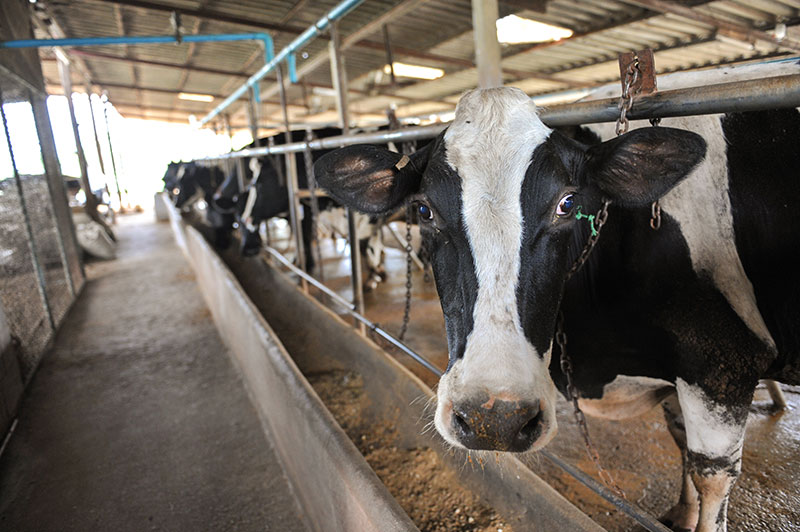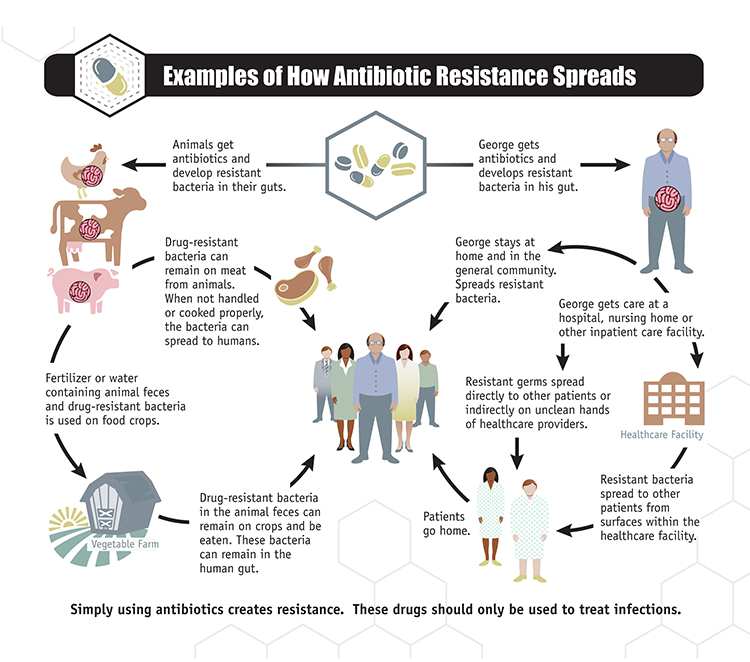Scientists to United Nations: Antibiotic-Resistant Superbugs are No Joke
In September – and for only the 4th time in 70 years – the UN will meet to deal head-on with a health crisis: antibiotic resistance.
Scientists to United Nations: Antibiotic-Resistant Superbugs are No Joke
In September – and for only the 4th time in 70 years – the UN will meet to deal head-on with a health crisis: antibiotic resistance.

The problem is so epic the United Nations General Assembly is meeting about it in September – which is only the fourth time the 70-year-old intergovernmental body has dealt head-on with a health crisis. The others included the HIV/AIDS pandemic in 1996, non-communicable diseases in 2011, and the Ebola outbreak in 2014.
To guide the UN, a group of 11 experts on antibiotic-resistant bacteria – including Ramanan Laxminarayan, the director of Center for Disease Dynamics, Economics and Policy – published a call-to-action in the scientific journal The Lancet this month. They urge cooperation between governments, and various agencies and industries – including the agriculture sector.
Roughly two-thirds of global antibiotic use is for livestock, with the rest used in humans, according to Laxminarayan. According to the FDA, about 80 percent of antibiotics are used for livestock and 20 percent for humans in the United States (although the agency later urged caution on making a direct comparison). Regardless, livestock are often given antibiotics not to cure a diagnosed illness, but to increase the animals’ size, or to act as a preventative measure in crowded industrial-scale farming operations. Because of this, the drugs can lose their potency. And when antibiotic-resistant bacteria develop in livestock, the bacteria can make the jump to humans through direct contact or through meat and other animal products, helping to spread diseases that are increasingly becoming harder to cure. (See figure below.) In the U.S. there isn’t an enforceable policy in place regarding the use of antibiotics for livestock – only a set of voluntary guidelines from the USDA that are suggestions for best practices.

“Make no mistake, the animal consumption [of antibiotics] is growing at a faster rate than the human consumption,” Laxminarayan told Modern Farmer last September. “There’s a huge increase in the demand for animal protein globally, and that means more farms are moving towards a more intensive form of agriculture.”
Antibiotic resistance is a global problem, and it hits close to home. In fact, more than two million people in the United States get infections that are resistant to antibiotics every year and approximately 23,000 people die as a result, according to the Centers for Disease Control and Prevention (CDC). While cases of Methicillin-resistant Staphylococcus aureus (MRSA) – probably the best-known bacteria resistant to antibiotic drugs – have declined in the U.S. over the last eight years, there are other even more dangerous “superbugs” coming to the fore.
In May, the first case of E. coli resistant to the antibiotic colistin, considered a drug of last resort, was found in a 49-year-old Pennsylvania woman suffering from a urinary tract infection. That same month, colistin-resistant E. coli was found in a pig intestine analyzed by the USDA. This drug-resistant E. Coli was first observed in China in 2015 from samples of live animals and raw meat, and it was later discovered in humans in both China and Europe. It’s believed the bacteria leapt from livestock to humans through food, Yohei Doi, an infectious-disease doctor at the University of Pittsburgh told the Washington Post in May. This is a significant development representing the breach of the final line of defense in our arsenal of antibiotics.
The UN has quite a road ahead in order to coordinate the safeguarding of antibiotics for future generations. The authors of the call-to-action describe the General Assembly meeting in September as “a rare opportunity to change how we as a global community use the only currently feasible method to treat bacterial infections. It is an opportunity that should not be squandered because of lack of ambition.”
Follow us
This work is licensed under a Creative Commons Attribution-NoDerivatives 4.0 International License.
Want to republish a Modern Farmer story?
We are happy for Modern Farmer stories to be shared, and encourage you to republish our articles for your audience. When doing so, we ask that you follow these guidelines:
Please credit us and our writers
For the author byline, please use “Author Name, Modern Farmer.” At the top of our stories, if on the web, please include this text and link: “This story was originally published by Modern Farmer.”
Please make sure to include a link back to either our home page or the article URL.
At the bottom of the story, please include the following text:
“Modern Farmer is a nonprofit initiative dedicated to raising awareness and catalyzing action at the intersection of food, agriculture, and society. Read more at <link>Modern Farmer</link>.”
Use our widget
We’d like to be able to track our stories, so we ask that if you republish our content, you do so using our widget (located on the left hand side of the article). The HTML code has a built-in tracker that tells us the data and domain where the story was published, as well as view counts.
Check the image requirements
It’s your responsibility to confirm you're licensed to republish images in our articles. Some images, such as those from commercial providers, don't allow their images to be republished without permission or payment. Copyright terms are generally listed in the image caption and attribution. You are welcome to omit our images or substitute with your own. Charts and interactive graphics follow the same rules.
Don’t change too much. Or, ask us first.
Articles must be republished in their entirety. It’s okay to change references to time (“today” to “yesterday”) or location (“Iowa City, IA” to “here”). But please keep everything else the same.
If you feel strongly that a more material edit needs to be made, get in touch with us at [email protected]. We’re happy to discuss it with the original author, but we must have prior approval for changes before publication.
Special cases
Extracts. You may run the first few lines or paragraphs of the article and then say: “Read the full article at Modern Farmer” with a link back to the original article.
Quotes. You may quote authors provided you include a link back to the article URL.
Translations. These require writer approval. To inquire about translation of a Modern Farmer article, contact us at [email protected]
Signed consent / copyright release forms. These are not required, provided you are following these guidelines.
Print. Articles can be republished in print under these same rules, with the exception that you do not need to include the links.
Tag us
When sharing the story on social media, please tag us using the following: - Twitter (@ModFarm) - Facebook (@ModernFarmerMedia) - Instagram (@modfarm)
Use our content respectfully
Modern Farmer is a nonprofit and as such we share our content for free and in good faith in order to reach new audiences. Respectfully,
No selling ads against our stories. It’s okay to put our stories on pages with ads.
Don’t republish our material wholesale, or automatically; you need to select stories to be republished individually.
You have no rights to sell, license, syndicate, or otherwise represent yourself as the authorized owner of our material to any third parties. This means that you cannot actively publish or submit our work for syndication to third party platforms or apps like Apple News or Google News. We understand that publishers cannot fully control when certain third parties automatically summarize or crawl content from publishers’ own sites.
Keep in touch
We want to hear from you if you love Modern Farmer content, have a collaboration idea, or anything else to share. As a nonprofit outlet, we work in service of our community and are always open to comments, feedback, and ideas. Contact us at [email protected].by Andrew Amelinckx, Modern Farmer
July 27, 2016
Modern Farmer Weekly
Solutions Hub
Innovations, ideas and inspiration. Actionable solutions for a resilient food system.
ExploreExplore other topics
Share With Us
We want to hear from Modern Farmer readers who have thoughtful commentary, actionable solutions, or helpful ideas to share.
SubmitNecessary cookies are absolutely essential for the website to function properly. This category only includes cookies that ensures basic functionalities and security features of the website. These cookies do not store any personal information.
Any cookies that may not be particularly necessary for the website to function and are used specifically to collect user personal data via analytics, ads, other embedded contents are termed as non-necessary cookies.